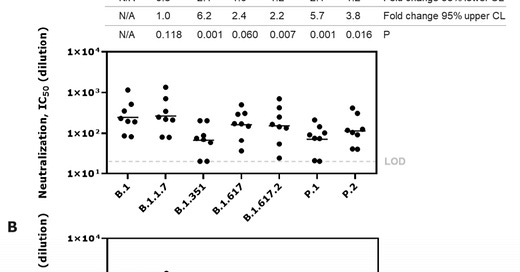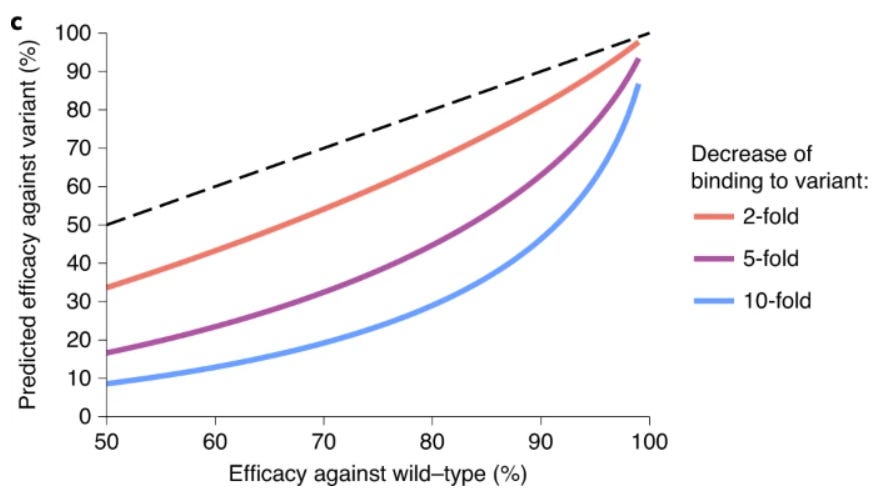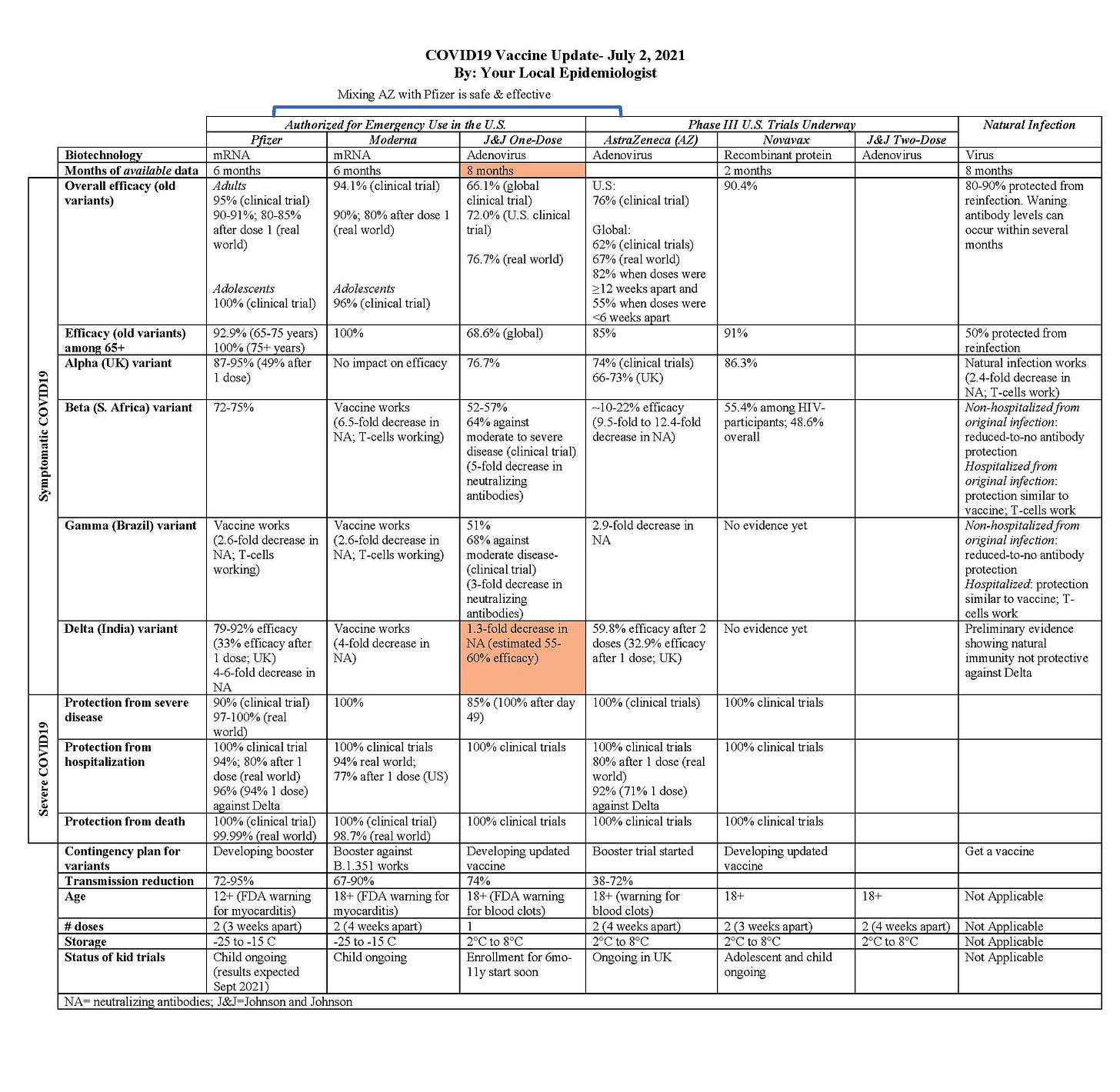Last night, Johnson and Johnson announced that their one dose regimen works against Delta. I wanted to see the actual science before updating you all. Here it is.
Important context. There are two ways to measure how well a vaccine works: Efficacy and immunogenicity. Immunogenicity is a more complicated metric that measures the type of immune responses that the vaccine generates and their magnitude over time (i.e. neutralizing antibodies). This study looked at immunogenicity.
Scientists took blood samples from 8 of their clinical trial participants. Then, in petri dishes, they infected the blood with Delta (and other variants). Neutralizing antibodies are good, so they watched how many decreased when introduced to Delta (which is labeled B.1.617.2 in the graph below). They found a 1.6-fold decrease in neutralizing antibodies.
What does this mean in terms of efficacy?
Neutralizing antibodies in a lab is difficult to map to real world efficacy. Thankfully, some scientists figured out a mathematical model (here). Using their model, this means the efficacy of J&J would be around 55-60% against symptomatic disease. It will still work well against severe disease.
In the same update, J&J said their vaccine continues to work over time, with strong responses for up to 8 months. This is because there’s only 8 months of data; we are optimistic it will last longer.
I updated the vaccine table for our J&J people.
So, yes, the J&J vaccine still works, to some degree, against Delta. You are protected.
Have a great 4th of July weekend, YLE








What do you think about the conflicting results from other studies though?
From the CDC Science page (https://www.cdc.gov/library/covid19/pdf/public_pdfs/2021-07-30-Science-Update_public_final.pdf), they point to this pre-print (I know) study results, which show very limited efficacy against Delta for J&J.
Should we expect Janssen-sponsored results to be different?
https://www.biorxiv.org/content/10.1101/2021.07.19.452771v2.full.pdf